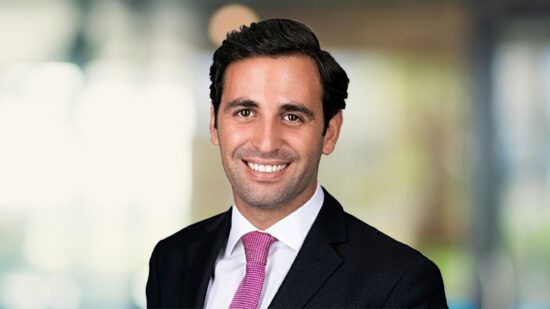In the downturn of 2008-09 there was a massive and well-documented flight from the investment area, especially funds of hedge funds. Rothschild’s multi-manager arm Rothschild HDF Investment Solutions was not immune from these problems.
“We certainly incurred some redemptions in the crisis years,” he recalls. “However, HDF – the company that Rothschild acquired to build its alternative side – was at least completely clean of Madoff. HDF continues to invest predominantly in French-regulated funds – the so-called Aria III funds, which will become Alternative Investment Funds under the new AIFM directive.”
This meant it avoided all the major scandals. However, because its funds were all liquid, they were penalised by investors who indiscriminately sold out their alternative positions. To be more accurate, it was not indiscriminate – they specifically sold out of the funds that had been well run, stayed open and maintained their liquidity. They punished the well-behaved funds and remained in the badly-behaved ones.
“Between early 2008 and now, we’ve lost half the assets of this traditional fund of fund business,” Laurens says. Of the multi-manager company’s €6bn AUM, just €2bn is now in alternatives. “So we’ve had to reinvent the business,” he says with a pragmatic shrug. “We now will give access to alternative investments in whatever form the client is more comfortable with.”
Biography
Job title: General partner, CEO of Rothschild & Cie Gestion
In 1995, Laurens was appointed as CEO of the French operations of Dresdner Kleinwort Benson and as CEO of AVIP, Dresdner Gestion Privée and Dresdner RCM Gestion. Between 1999 and 2005 he was deputy CEO and global head of sales and marketing at Axa Investment Managers Group, CEO of Axa Investment Managers France, Benelux, Italy and Spain, and director of Axa France Assurances.
In 2006 he was appointed CEO of Banque Robeco and Robeco Gestion (France) and in December 2008, head of investment management (mainstream) and member of Robeco Group management board (Netherlands). Since September 2009, he has been general partner of Rothschild & Cie Gestion, head of asset management and private banking activities.
That could still be a fund of hedge funds, however. Multi-manager hedge funds are apparently coming back into favour, especially for HNWIs and small institutions. Larger institutions will generally require their own segregated mandates, with more favourable commercial terms, of course. But there is also a third way – managed accounts on Rothschild’s third-party fund platform.
Platform announcement
The platform is run by an external company that has a custodial, reporting and risk-management role. Funds on the platform have in essence the Rothschild stamp of approval – several of the funds are even Rothschild-branded.
A growing part of their business has become capital introduction – promoting this set of hand-picked funds to their client base around the world. If it seems suitable, they will even create Ucits versions of the funds.
“We also distribute hedge funds with managers that we have identified who are smaller, emerging managers who are not very well known – we offer them access to the European markets on our platform – sometimes adding our name or putting it into the Ucits format.
“For instance we have a long/short equity managed account in a Ucits format. We believe this is the way to bring investors back into the hedge fund space in continental Europe after these many years of reluctance, which were prolonged by lower returns.”
Of course, not all funds are suitable for Ucits, because of the liquidity restraints. “Long/short equity or global macro are two strategies that work,” he says. “For other strategies, they would either have to hold a lot of cash or do a lot of synthetic replication of the performance of the original fund.”
But managing a synthetic portfolio is not the core expertise of the manager and so Laurens does not encourage this. “In any case, at some point investors have to accept that if you want access to these managers you need to accept less liquidity than in a traditional fund,” he explains. “If you want performance, you have to take a bit of risk in less liquid investments.”
Laurens accepts that in the past there were issues with funds of hedge funds being too expensive – a fault that was harshly exposed when the products lost money in the downturn – and continued to charge high fees even when the returns were poor. “But we are convinced that this is no longer a good reason not to invest in hedge funds today,” he adds.
This is especially the case now the outlook for fixed income is so uncertain, according to Laurens. Even if in the short term there is little sign of inflation, in the medium term there is a lot of inflation stored up – and with inflation comes higher interest rates.
Equities are another obvious place to move, but people have already started doing this and the price has been affected. “Equities are rather expensive in certain parts of the world,” he says. “European equities are still fairly cheap but the US is so expensive that diversifying into hedge funds is certainly worth thinking about, and we are seeing European institutions and private investors increasingly moving into these strategies once again.”
Reach and growth strategy
Rothschild & Cie Gestion is best known in its native France, where it has around 5% to 7% of the market share of institutional mandates. Outside that, its focus is Switzerland, Germany, Benelux, a little bit of Nordics and Spain. But not so much the UK, as Laurens admits.
“For one thing, we are a euro house,” he says. “For another we are a small boutique, so we don’t have any easy access to the UK market, which is sterling-based. In any case, our core eurozone competence is more eurozone equities and European equities. We aren’t particularly strong in UK equities.”
The only exception to this lack of presence in the UK is the fund of hedge fund business, which has both institutional and HNW clients. “In Germany we used a third-party marketing firm called Max.xs. These guys offer a distribution structure with eight sales people – much more than we could afford. And that way we have better access to the German institutional and wholesale market.”
What the company does
Rothschild & Cie Gestion is the relatively newly-created asset management arm of the partnership. It has three centres of asset management: Paris, London and New York and it has €25bn AUM, of which 60% is in equities. The Paris office focuses on European equities while the US office manages US equities. “In Paris we have a pretty strong European fixed income capability, particularly in credit and convertibles – what we call fixed income specialities,” explains Laurens.
The equity processes on the two sides of the Atlantic are quite different and follow culturally-familiar lines. The US team has more holdings and uses more quant; the Europeans are more concentrated and less computerised. In Paris, the firm also has its multi-manager team. This came out of Rothschild’s purchase of well-known French fund of hedge fund specialists HDF. They renamed it Rothschild HDF Investment Solutions and merged it with their existing long-only multimanager team. HDF’s €6bn is split between providing funds of hedge funds; funds of long-only funds, and open-architecture solutions for institutions.
They already have some presence in Spain – and in a couple of months’ time, they will be opening an office in Milan. What is interesting is to have a boutique with such a diverse client base. Being a French company might be seen as a disadvantage in the sometimes francophobic US, but there are several reasons why it hasn’t been a problem, according to Laurens.
“Rothschild is a global brand name,” he says, “If anything, it is seen as more UK than French, even though we are from the French part of the Rothschild family.”
Another factor is that Rothschild is not trying to hit the retail market. “When you are small player, as we are, you are relying on consultants,” he says.
“To approach the retail and wholesale business in the US requires more resources in terms of marketing, client servicing and so on. When you are a focused, small boutique, it’s easier to access the institutional market with consultants as intermediaries then it is to access the retail distribution markets.”
Consulting growth
So, whether through the consultant-intermediated US market or the more relationship-orientated European regions, Laurens will continue to focus on the company’s strengths and position himself to profit as the global investment community works out what the shape of the new world is.







